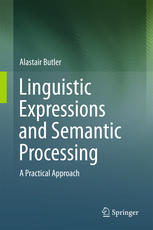

Most ebook files are in PDF format, so you can easily read them using various software such as Foxit Reader or directly on the Google Chrome browser.
Some ebook files are released by publishers in other formats such as .awz, .mobi, .epub, .fb2, etc. You may need to install specific software to read these formats on mobile/PC, such as Calibre.
Please read the tutorial at this link: https://ebookbell.com/faq
We offer FREE conversion to the popular formats you request; however, this may take some time. Therefore, right after payment, please email us, and we will try to provide the service as quickly as possible.
For some exceptional file formats or broken links (if any), please refrain from opening any disputes. Instead, email us first, and we will try to assist within a maximum of 6 hours.
EbookBell Team

4.0
46 reviewsThis book introduces formal semantics techniques for a natural language processing audience. Methods discussed involve: (i) the denotational techniques used in model-theoretic semantics, which make it possible to determine whether a linguistic expression is true or false with respect to some model of the way things happen to be; and (ii) stages of interpretation, i.e., ways to arrive at meanings by evaluating and converting source linguistic expressions, possibly with respect to contexts, into output (logical) forms that could be used with (i).
The book demonstrates that the methods allow wide coverage without compromising the quality of semantic analysis. Access to unrestricted, robust and accurate semantic analysis is widely regarded as an essential component for improving natural language processing tasks, such as: recognizing textual entailment, information extraction, summarization, automatic reply, and machine translation.